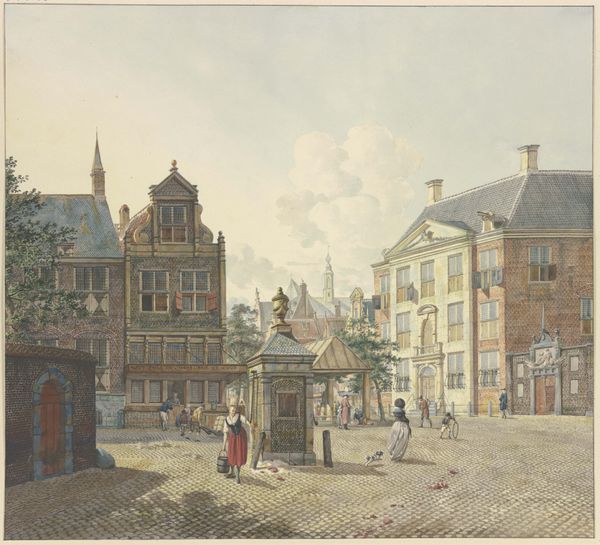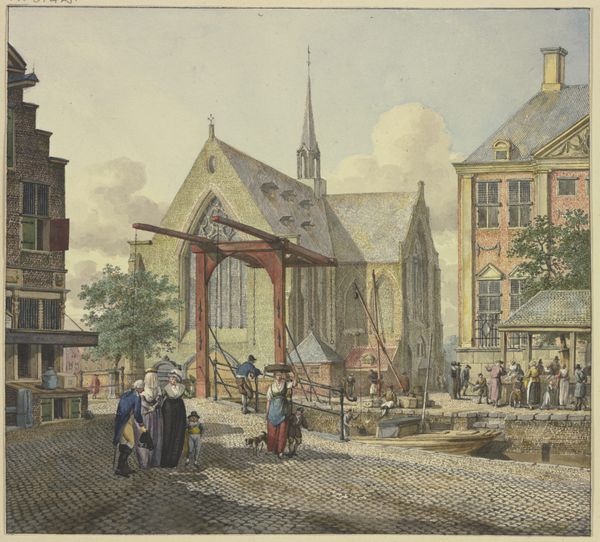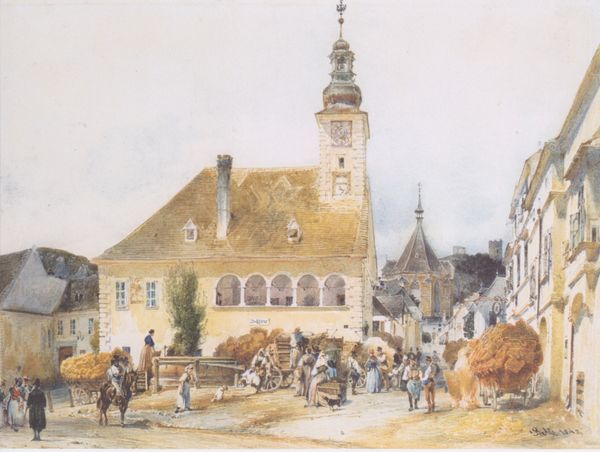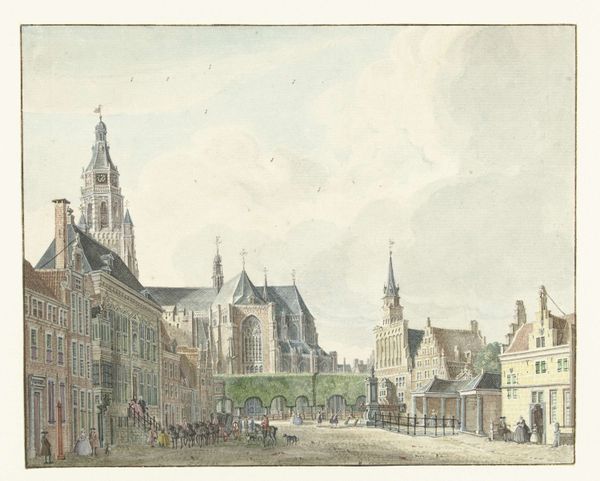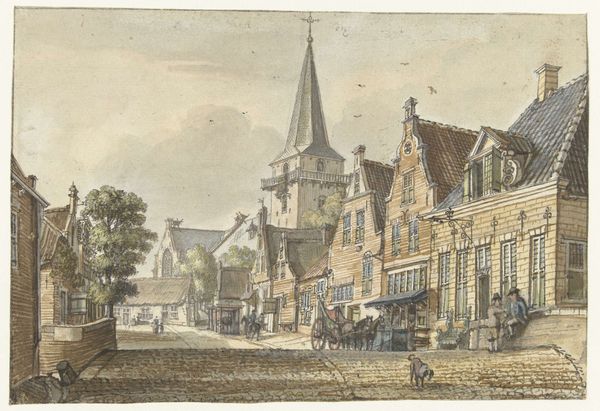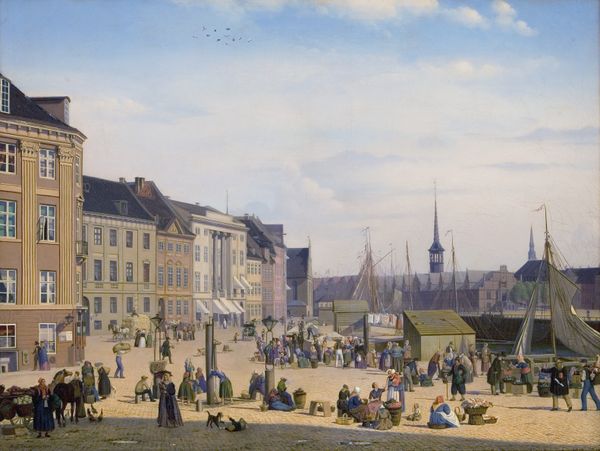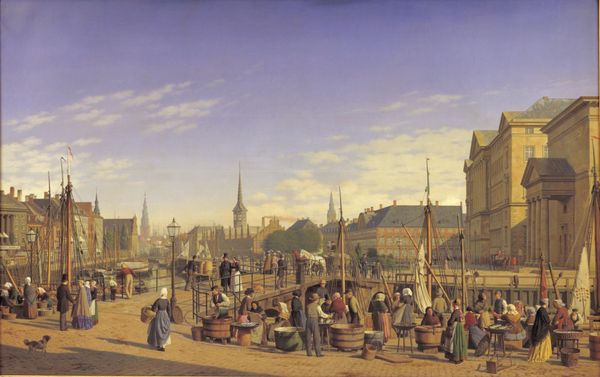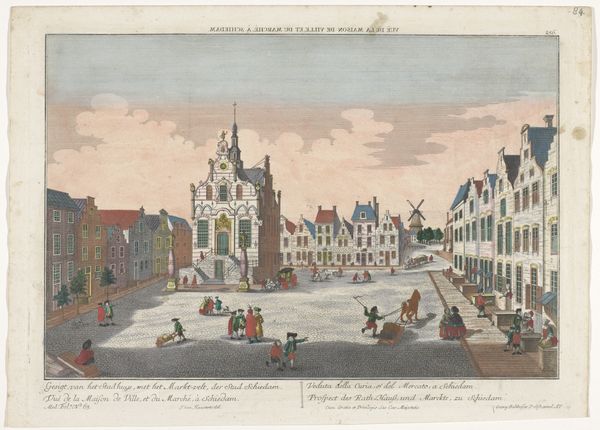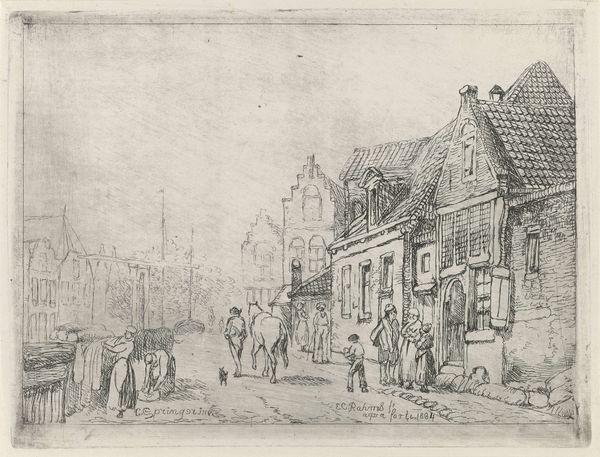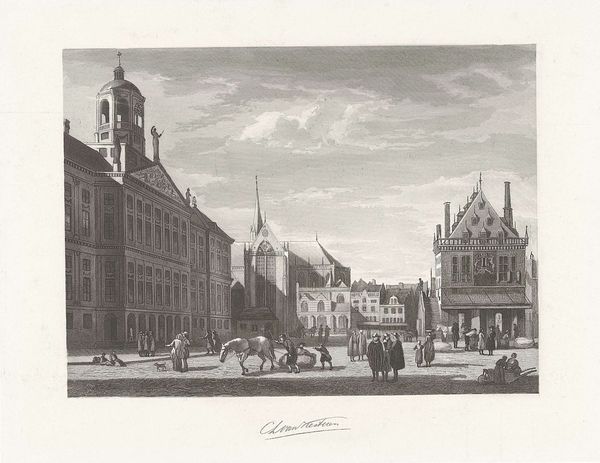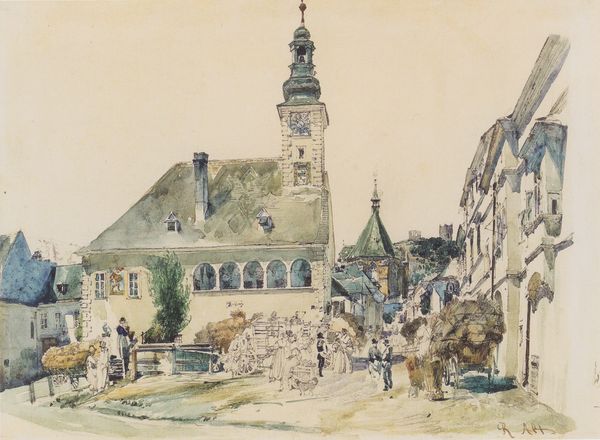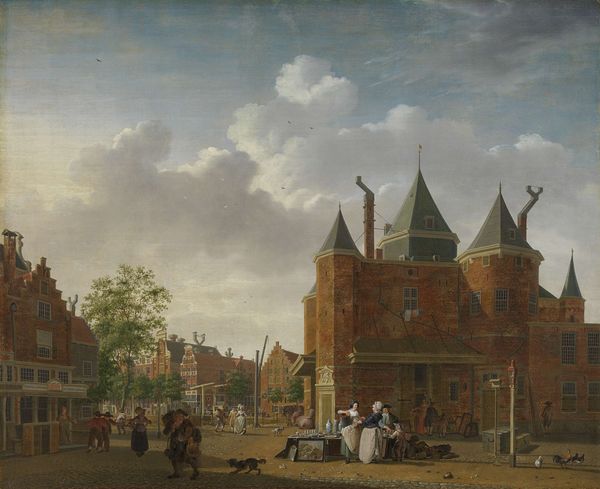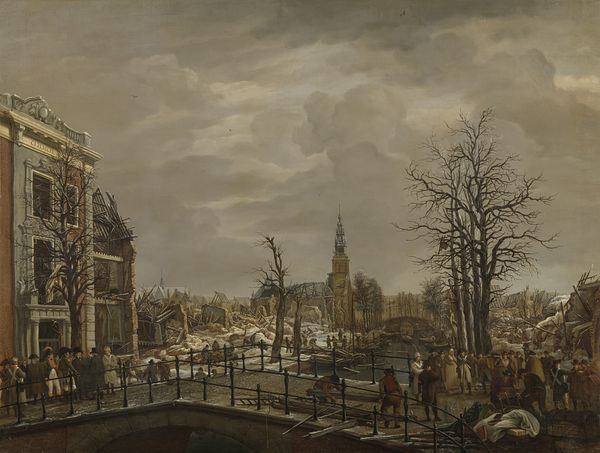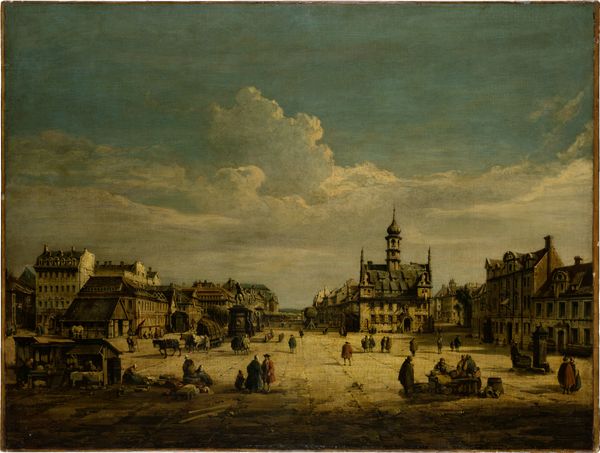
Dimensions: 47.5 cm (height) x 55 cm (width) (Netto)
Heinrich Hansen made this painting of Holmens Kirke using oil on canvas. The application of paint is smooth and controlled, a technique that was prized in academic painting during the 19th century. Hansen’s process began with stretching the canvas, preparing the surface with gesso, and then meticulously layering colors to create this realistic scene. The artist would have worked at his easel, using brushes to render the architecture and figures with precision. Notice how the material qualities of the paint—its viscosity and opacity—allowed Hansen to capture the subtle gradations of light on the church's facade. Though seemingly straightforward, oil painting embodies a complex intersection of labor, material production, and social status. Pigments were sourced globally, ground by hand, and mixed with oils to create the paints that artists like Hansen used. By understanding the material basis of this work, we can appreciate the skilled labor and broader economic systems that made its creation possible.
Comments
No comments
Be the first to comment and join the conversation on the ultimate creative platform.
